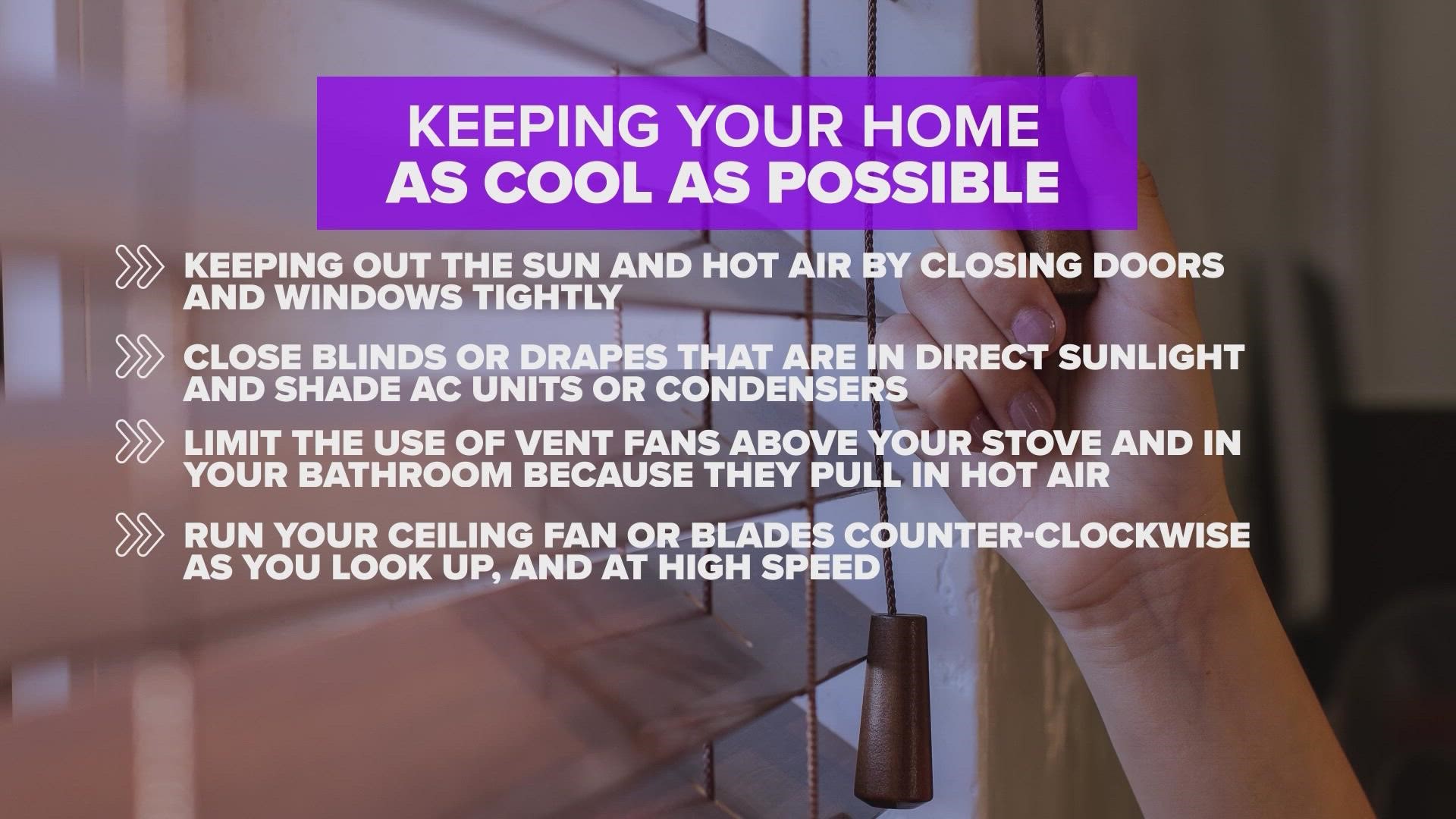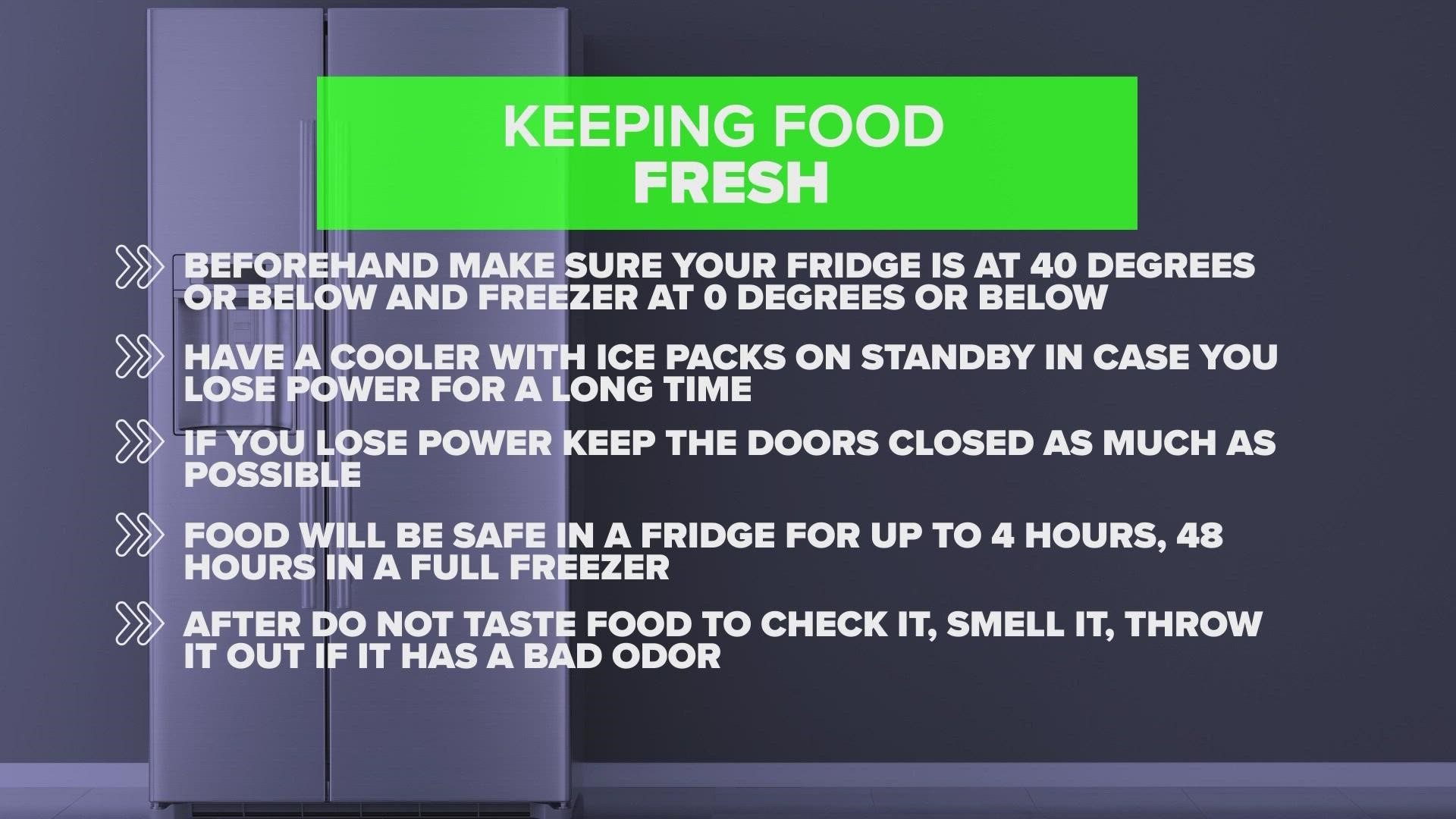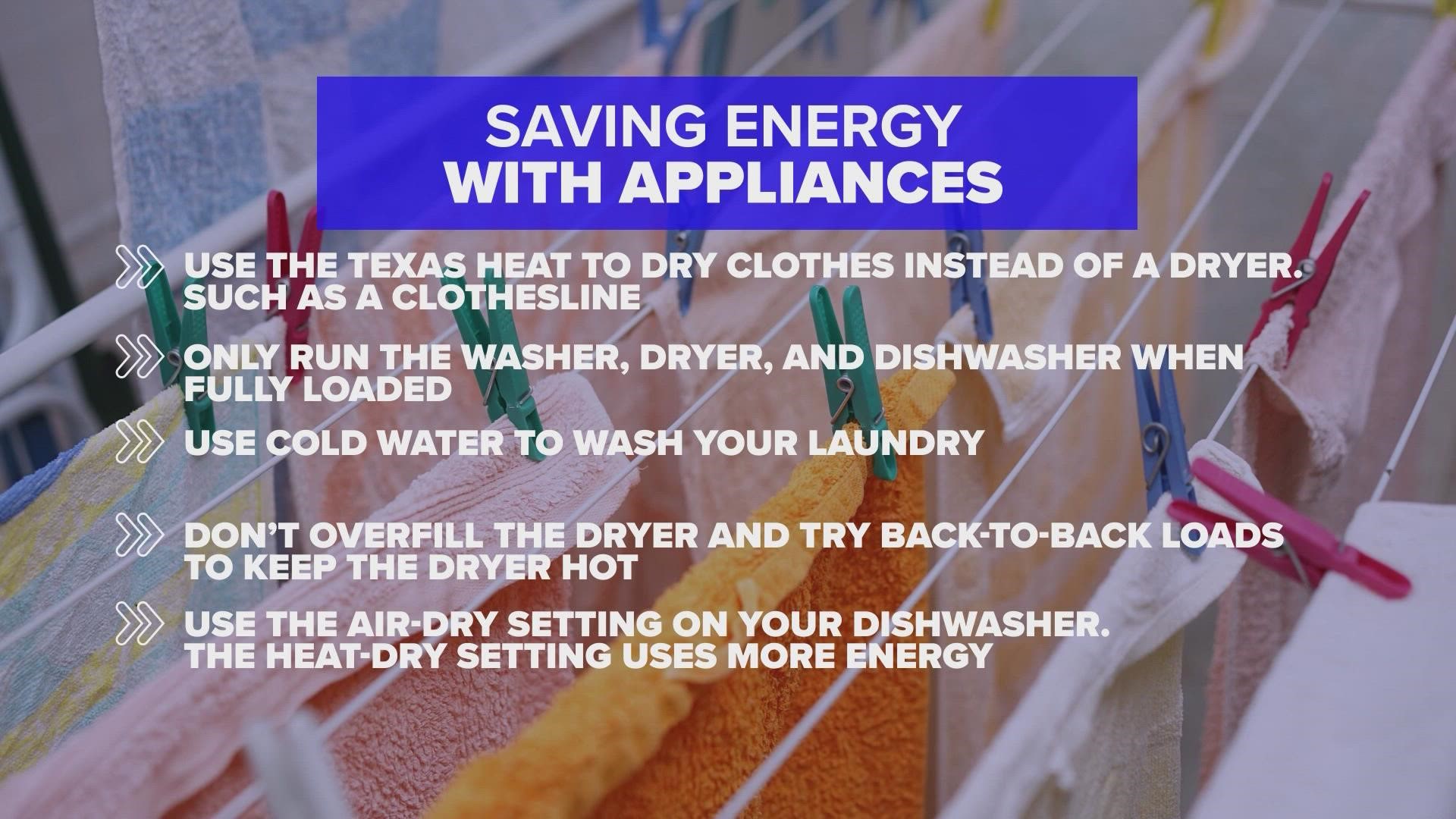SAN ANTONIO — There are plenty of ways to buffer your home from this extreme heat. Of course, we all know about not setting the air conditioner too low, but along with that, have a fan you can bring around the house with you so you always have air blowing on you, keeping your body temperature cooler.
A lot also has to do with your bed. You can seasonally swap out your bedding, like getting rid of flannels and fleece and exchanging it for cotton that would help your bedding breathe easier, and stay cooler. A buckwheat pillow is also great because there are naturally occurring air spaces between the buckwheat hulls. Also, take a water bottle, fill it and freeze it. Place it at the foot of the bed. It may sound odd, but slightly dampening the sheets will help keep you cooler. It'll also help keep your home a little cooler.
Deanna Hardwick, the EVP of Customer Service with CPS Energy told us, "I do put all my fans on and I close down all the windows. I don't run my big TV. I watch things on my phone whether it is Netflix or Hulu, so it is quiet and dark inside the house, but I can still get some enjoyment."
Here are some other simple tips to keep your home as cool as possible:
- Keep out the sun and hot air by closing doors and windows tightly.
- Close blinds or drapes that are in direct sunlight, and shade A/C units or condensers.
- Limit the use of vent fans above your stove and in your bathroom because they pull in hot air and make your A/C unit work harder.
- Run your ceiling fan or blades counter-clockwise and at high speed.
If you lost power in the winter and your home became colder, you may have noticed food didn't spoil as quickly. But, if you lose power in the summer, a hotter home could allow the fridge and freezer to warm faster, spoiling the food at a much faster rate.
We know it has already been so hot for so many weeks, but it is never too late to prepare for a power outage in the summer. With temperatures this hot, you would almost have to prepare daily making sure everything is the right temperature inside the appliance, and you have the right tools on standby to make sure your food and drinks are fresh. Spoiled food was just one of the many problems when people lost power last February. CPS Energy says the City is ready to help and inform. Hardwick added, "The biggest thing is we know that it is hot and there are challenges, so go online or call us. We will be able to set you up with alerts as well as different programs."
They can even help with tips about your fridge. The CDC can help too as they say make sure your fridge is at 40 degrees or below and freezer at 0 degrees or below. Have a cooler with ice packs on standby in case you lose power for a long time. If you lose power, keep the doors for both the freezer and fridge closed as much as possible. Food will be safe in a fridge for up to four hours, 48 hours in a full freezer and 24 hours in a half-freezer. Do not taste food to check it. -- smell it and throw it out if it has a bad odor. Any food that is above 40 degrees should be thrown out.
We've been saying for weeks now not to run major appliances during the peak heating of the day, which is 2 p.m. until 7 p.m. But, sometimes, you've just got to use them. But there are other appliances you should also try to avoid that use a decent amount of electricity too.
Your microwave and coffee machine use about 1,000 watts of electricity, which is just shy of the 1,200 watts used by your oven. If you happen to have an espresso machine, that uses 800 watts of electricity. Anything else that draws power and is plugged in should be unplugged when not in use, like any kind of floor lamp, fan, or countertop appliance, because even when off, they are drawing power.
Hardwick also said, "Try to reduce using the dishwasher or the clothes washer and the dryer at the peak times. Do that later in the day if you can, or overnight. Or, doing it first thing in the morning will be better to make sure your system won't have to work harder."
Check out these tips to save energy with major appliances:
- Use the Texas heat to dry clothes instead of a dryer, such as a clothesline.
- Only run the washer, dryer and dishwasher when fully loaded, and not during the heat of the day.
- Use cold water to wash your laundry.
- Don't overfill the dryer and try back-to-back loads to keep the dryer hot.
- Use the air-dry setting on your dishwasher. The heat-dry setting uses more energy and releases heat into the home, making your A/C unit work harder.



